A work of fiction by William B. Scott, member of the STARRS Board of Advisors
William B. (Bill) Scott is a full-time author and consultant. He retired as the Rocky Mountain Bureau Chief for Aviation Week & Space Technology, following a 22-year career with the international magazine. He also served as Senior National Editor in Washington, and in Avionics and Senior Engineering Editor positions in Los Angeles. He covered advanced aerospace and weapons technology, business, flight testing and military operations, wrote more than 2,500 stories for the magazine, and received 17 editorial awards. He is the author of , Combat Contrails: Vietnam, Inside the Stealth Bomber: The B-2 Story and other books. A Flight Test Engineer graduate of the U.S. Air Force Test Pilot School, he has logged 2,000 flight hours on 81 types of aircraft. He holds a BS degree in Electrical Engineering.
–
Have a seat, general. It’s good to finally meet you.”
Lieutenant General Nick “Hoss” Horseman reached across the desk and shook hands, noting the interviewer hadn’t bothered to introduce himself.
“And your name is…?” Hoss asked.
“Just ‘Sir’ will do,” the man replied. A hard-eyed stare should have discouraged further questions, but the three-star officer pressed on. He’d been pre-briefed by his boss, and had a vague idea how this session would unfold. Besides, standing six-foot-five and tipping the scale at 240 pounds, few people intimidated General Horseman.
“…and you represent what office? Or unit?”
The interviewer half-smiled. “I’m with ‘The Council’. We’re charged with vetting senior military officers and civilian Senior Executive Service candidates to ensure they meet certain criteria. Now, let’s get started. I’m sure you’re very busy.”
Horseman nodded. Older, of course, but the same ‘dead’ black eyes. As a young junior officer, Hoss had seen the then-Secretary of Defense up-close, when the man had visited the 1st Fighter Wing. The guy had exuded what Hoss termed “unadulterated evil.” Time had not mellowed the ex-SecDef.
“General, a little background is necessary to explain this process. Many decades ago, several smart Constitutional scholars raised the question: What protects America from an attempt by the military to take control of our government?
Almost assuredly such a revolt would be led by top-level officers, whether active-duty or retired. Military-led coups had occurred in other countries, usually accompanied by much bloodshed. Hence, measures were put in place to ensure America would never be subject to the same.
“You still with me?” the ex-SecDef snapped. Hoss acknowledged with a quick nod.
“Good. I see you have a sterling service record. It’s a rare fighter pilot who hasn’t skated close to an Article 15—or worse—by committing infractions inflight or mouthing off to a superior officer in the O-club. But your record’s squeaky clean. Care to comment about that?”
“Sir, I’ve never cared for hard liquor or even beer. I’m not much fun at Happy Hour,” Hoss answered, straight-faced. “And I’m a disciplined-enough pilot to still be vertical and mobile.”
The interviewer flipped a hand dismissively. “Neither here nor there, really. What’s important is this: As a four-star officer, can you be counted upon to carry out the Commander-in-Chief’s orders, without question?”
“As long as those are legal orders, yes.”
“That’s a little iffy, general. Specifically, will…you…honor…your…oath, if the President of the United States commands you to execute an order?”
Horseman leaned back and crossed his legs. As if thinking, he pursed his lips and stared at a spit-shined boot. “Sir, I swore an allegiance to the Constitution of the United States of America. Not to a person, party or agency. That said, every officer who takes that oath also commits to carry out the lawful orders of his or her superiors.”
The interviewer tilted his head and raised a palm, silently directing Horseman to continue. Hoss remained silent.
“I see. One more question in that realm, general,” the former SecDef added. “How do you feel about what this so-called STARRS group claims is rampant ‘wokeism’ in the military services? Are you a member of STARRS?” No explanation of the acronym.
“Sir, I’m familiar with the Standing Together Against Racism and Radicalism in the Services organization. But no; I’m not a member of STARRS. It’s not political, but I didn’t think an active-duty officer should join STARRS. The association might be misconstrued somehow.”
“Really? Good ol’ straight-arrow Hoss never gets out of his lane,” the interviewer muttered. “Apparently, you believe so-called ‘wokeism’ isn’t an issue?”
Horseman’s jaw tightened noticeably. “The new SecDef has ordered a total purge of DEI throughout the Defense Department. My staff and I have actively fought to stamp out every vestige of ‘woke’ among our officers and enlisted personnel for one reason: Diversity, equity and inclusion—DEI—really means division, exclusion and indoctrination. DEI is a dangerous ideology rooted in Marxism. Far as I’m concerned, it’s just repackaged communism, and I’ve spent my entire career battling communism. ‘Woke’ is not tolerated in my outfits. Sir.”
“Well then. Let’s move on,” Dead Eyes clipped. “Should you be promoted and serve your president honorably, you will retire with a very comfortable government pension, as you know. What you may not know, however, is this: Thanks to our close cooperation with top-tier business partners, you will be ‘invited’ to serve as a director on multiple corporate boards. These positions are quite well-compensated, ensuring our retired four-stars live comfortably. Of course, there are conditions, as any intelligent officer of your rank and position would surmise.”
There it is. First the honey; now the stick. “Conditions or requirements?”
Dead Eyes ignored the question. “First, our retired four-stars agree to not indulge in political activism that could be construed as publicly opposing the Commander-in-Chief’s positions, policies, actions, et cetera. No op-eds, letters- to-the-editor, TV interviews, tell-all books or behind-the-scenes skullduggery.
Understand?”
“Yes, sir. Loud and clear.”
“Second: Should an officer violate these conditions, he or she would immediately forfeit their entire retirement, be banned from serving on any boards of directors, and be black-balled from employment with every aerospace and defense company in America. If necessary, the rogue officer would quietly be reduced in rank, too. Just for starters…”
The remaining monologue essentially reinforced that no-opposition dictum. Finally, “Any questions or comments, general?”
Hoss leaned forward, elbows on knees, and stared into those black orbs a long moment. “Sir, under the rules-of-engagement you’ve clearly explained, how did twenty-some retired four-star generals and admirals get away with openly endorsing then-candidate Joe Biden, during the 2020 presidential campaign?”
A flash of surprise darkened the interviewer’s countenance. “That, general, was a special case. Those officers felt very strongly that our great nation was at considerable risk, should Mr. Biden’s opponent retain the presidency for another four years. Those passionate patriots were given a one-time dispensation to openly support President Biden. Highly unusual—maybe unprecedented—but it was absolutely necessary for national security.”
“Okay,” Hoss said quietly. “Were those officers also offered….uhh…special incentives?”
Another hand wave of dismissal. “Of course not!” The Council representative scoffed. “These patriotic Americans were deeply concerned about the nation’s future. Hence, they collectively petitioned for a waiver. Will that be all?”
Clearly, the interview was concluded. Not waiting for a response, the man shoved a document across his desk and barked: “Are you prepared to comply with these conditions? If so, sign here and stand by for a call from the president. You’ll have a brief session with him—merely a formality—then he’ll announce your nomination. In short order, you’ll be confirmed and pinning on that fourth star. You’re about to join a very elite fraternity, General Horseman.”
Hoss stood and looked down at the former Secretary of Defense, again noting that those dark eyes were devoid of light. Dead eyes….killer eyes…
“Sir, I’d like to discuss this with my wife, before committing,” Hoss said slowly. “Is that permissible?”
Dead Eyes took a deep breath and blew it out slowly, shaking his head in disbelief. “Never heard that one before! Most three-stars are ready to sign-up when they walk in here! But if that’s the way you operate, fine. Be here at ten- hundred tomorrow, and we’ll get your package ready for the president.”
Late that night, sitting alone in his den, Horseman mentally replayed the interview and a subsequent discussion with his bride. Conflicted hardly did justice to his cerebral wrestling match. If I accept the nomination and a fourth star, I’ll be committed to carry out any order the president issues. Fire on ordinary Americans protesting an administration dictate? Use military resources for an off- the-books operation inside the United States, perhaps for blatantly political objectives?
On the other hand, if I don’t take that fourth star, somebody else will. Do I owe it to my people—the rank and file of my Air Force—to stay and fight for them within the system? In doing so, will I somehow be violating the oath I took almost three decades ago? If I refuse to carry out a presidential order, will I be branded forever as a disloyal stooge, a virtual traitor? The Council obviously has the power to destroy anybody they target.
Around oh-three-hundred, an exhausted Lieutenant General Nick “Hoss” Horseman made the toughest decision of his stellar Air Force career.
Bill Scott is also the author of the fiction books, “Space Wars: The First Six Hours of World War III, a War Game Scenario” and “Counterspace: The Next Hours of World War III“.



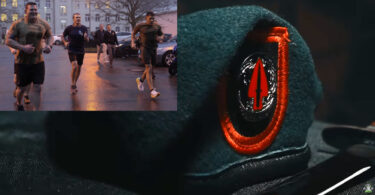

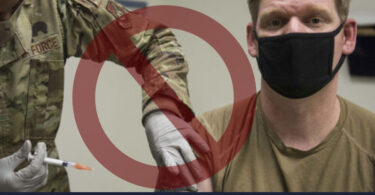
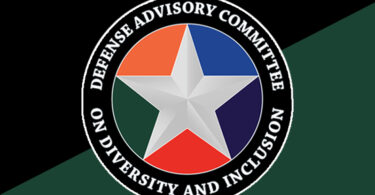
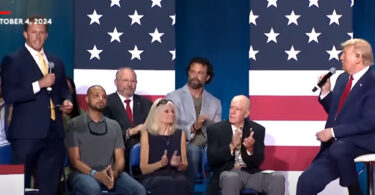
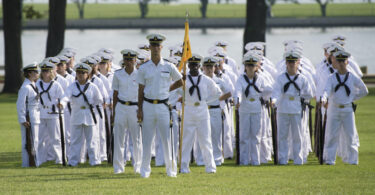
Leave a Comment